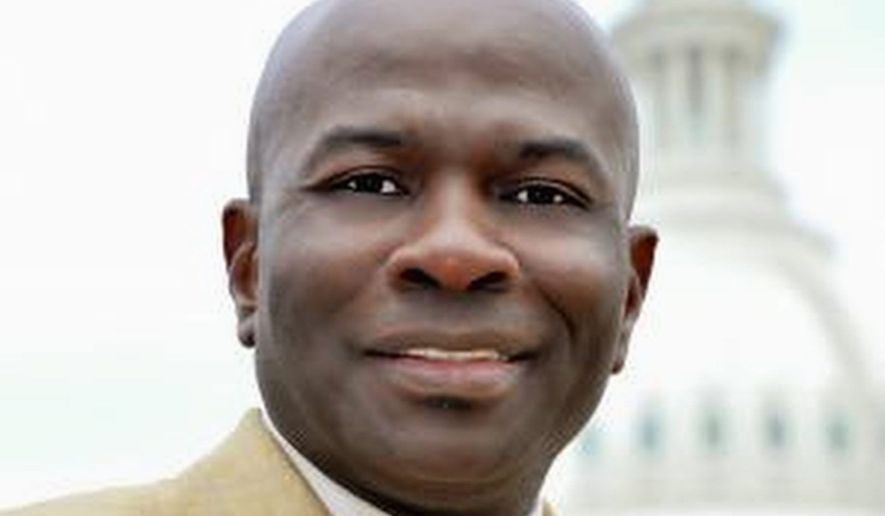ANALYSIS/OPINION:
By almost any standard, President Obama defies easy classification. He embodies the temperament and often the deliberative air of an ivory tower intellectual, and yet he clearly thrives amid the muddy fray of electoral politics. He, like many of the youth of Ferguson, Missouri, grew up without his father present. And yet his life experience could not be more distant than that of the typical inner-city teenager growing up in a single-parent household.
Given his obviously otherworldly powers of persuasion, it is rare that one comes face to face with the stark reality that Mr. Obama does not know what it is like to grow up poor and uneducated in America’s toughest slums. After the death of Trayvon Martin, Mr. Obama lamented the teen, saying that if he had a son, he would probably look a lot like Trayvon. But in almost every category other than sex and pigmentation, Barack Obama and Trayvon Martin share almost nothing in common. And in making the comparison, Mr. Obama was being deliberately misleading about his own identity. In fact, as a successful lawyer, author and father, Mr. Obama has much more in common with the maligned 1 percent than with the youth of America’s slums.
Sure, he worked in inner-city Chicago after college. But his experience in Chicago was more like that of a Peace Corps volunteer off to see the world and make a difference than someone who had deep cultural and family ties to the community. He alluded to as much in his memoir, “Dreams of My Father,” when he stated: “If the language, the humor, the stories of ordinary people were the stuff out of which families, communities, economies would have to be built, then I couldn’t separate that strength from the hurt and distortions that lingered [t]he stories that I had been hearing from the leadership, all the records of courage and sacrifice and overcoming of great odds, had arisen out of a very particular experience with hate. That hate hadn’t gone away I had to ask myself whether the bonds of community could be restored without collectively exorcising that ghostly figure that haunted black dreams.”
Even though he uses the phrase “our lives,” he is clearly referring to “their” outlook on life. Mr. Obama explicitly and conscientiously rejected inner-city culture as a framework for personal and community growth. And while he found some strength in the “records of courage and sacrifice” that were being recounted to him by inner-city community leaders, he also found that those histories were too corrupted by hatred (or fear of hatred) to make them a foundation for progress and, ultimately, ascendancy to the pinnacle of power in America.
While Mr. Obama might even empathize with the plight of Trayvon Martin or Michael Brown, his response to overcoming was just the opposite of the crowd that gathered nightly in Ferguson and waived their arms in mocking admonition to the riot police. It would not have been to express indignation by rioting and looting. Mr. Obama’s response would have been to raise his arms in the classroom, making his voice a contribution to the creation of law and public policy in America. It would have been to become a lawmaker in hopes of one day changing it for the benefit of all Americans.
Perhaps Mr. Obama rebelled as a teenager because he was angry at having grown up without a father. But that only tells a small part of the story. The reality is that at the age of 18, Mr. Obama had access to very specific resources and avenues of opportunity: His mother had earned a doctorate, and his grandmother was one of the first female bank presidents in the country.
Mr. Obama had also been exposed to a broad array of culture and ideas from having traveled and lived abroad during his youth. His expectations for both himself and the society in which he lived were thus far beyond anything Michael Brown or his peers even dreamed of.
And yet there are many within the black community who feel that because of the color of his skin, Mr. Obama would automatically identify with the plight of the youth of Ferguson. They are shocked and disappointed when, instead of joining them on the front lines, he acts more like the presidents before him and stays above the fray.
Many will point out that other black leaders, such as the Rev. Martin Luther King or Thurgood Marshall, also have upper-middle-class roots. They too suffered some personal disconnection between their own outlook and large factions of the community they represented. But because of the societal structure at the time, upper-middle-class and poor people often lived in closer proximity to each other — especially in the black community. Unlike today, concentrated poverty tended to exist more prevalently in nonblack communities.
But the broader point is that the responsibilities that come along with leadership and ascendency inevitably lead to life choices, behaviors and personal connections that elevate one above the fray. While Mr. Obama can certainly adopt enough of the body language and catchphrases of the hip-hop generation to make for a cool photo-op, his day-to-day life could not be further removed from the streets of Ferguson.
• Armstrong Williams is sole owner/manager of Howard Stirk Holdings and executive editor of American CurrentSee Online Magazine.
• Armstrong Williams can be reached at 125939@example.com.




Please read our comment policy before commenting.